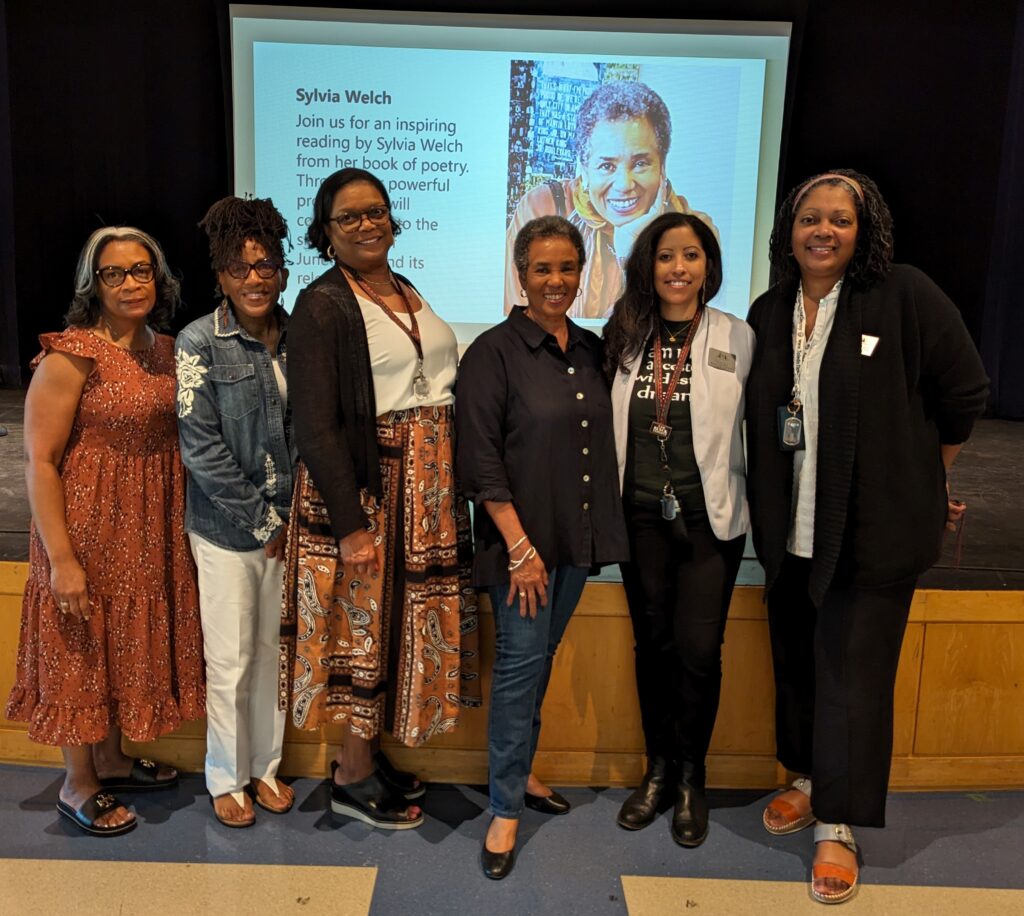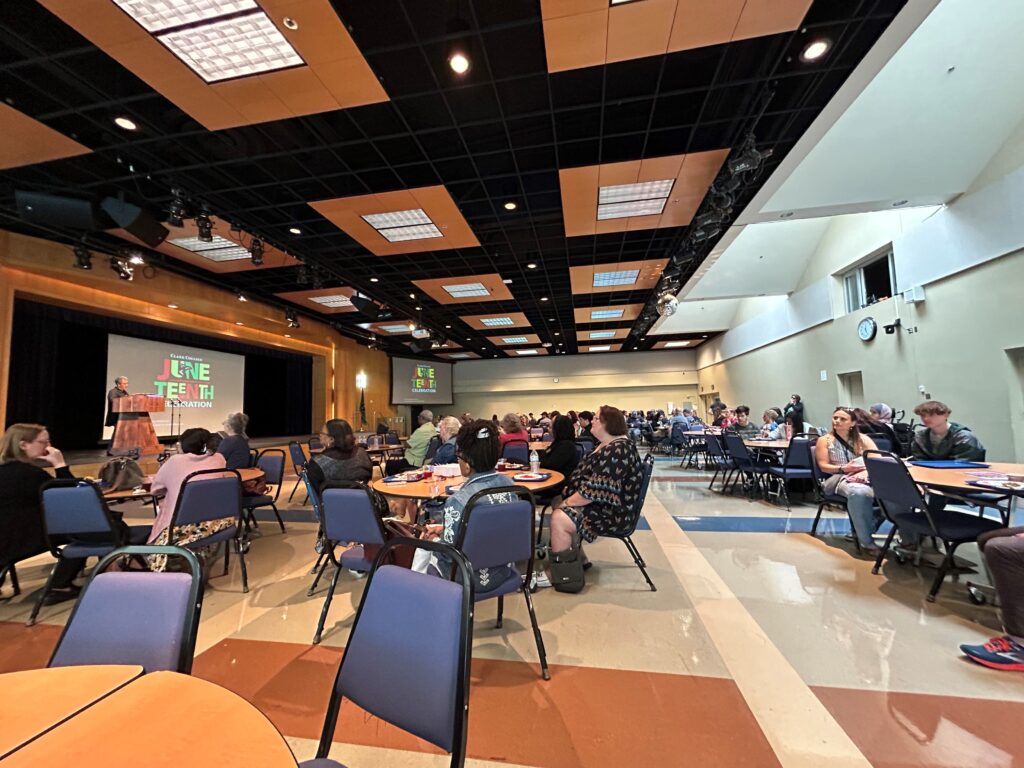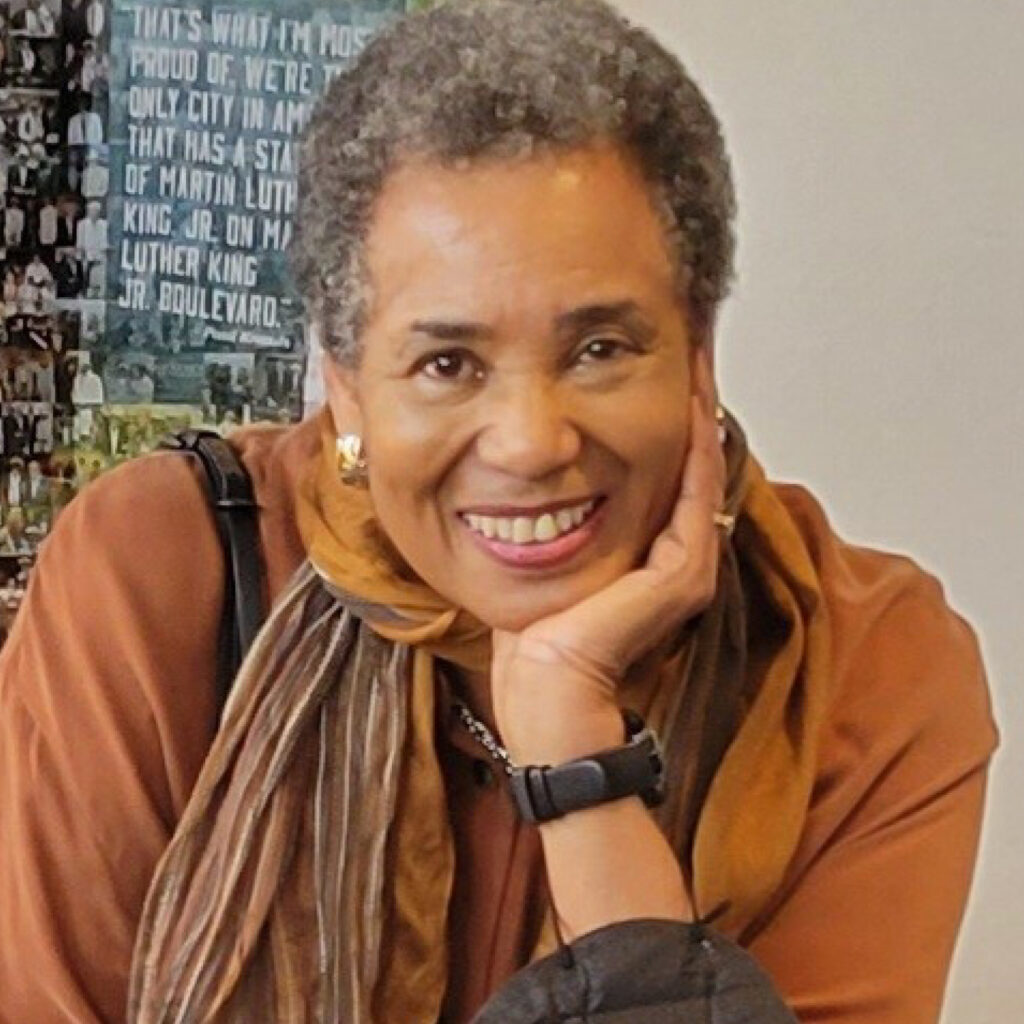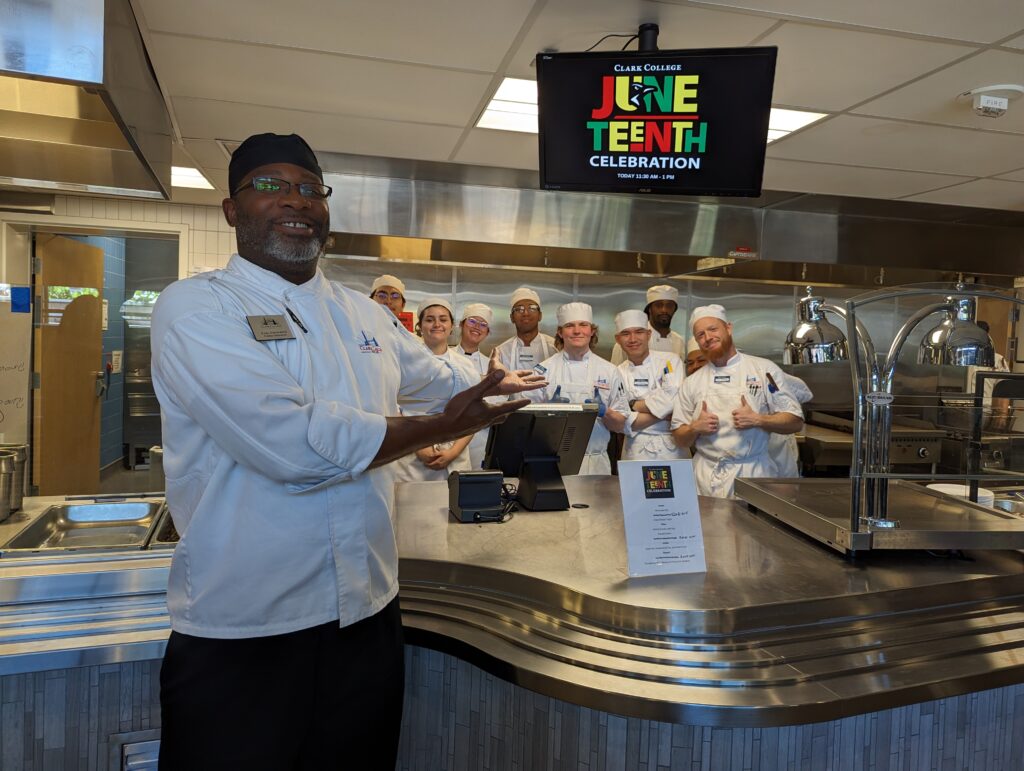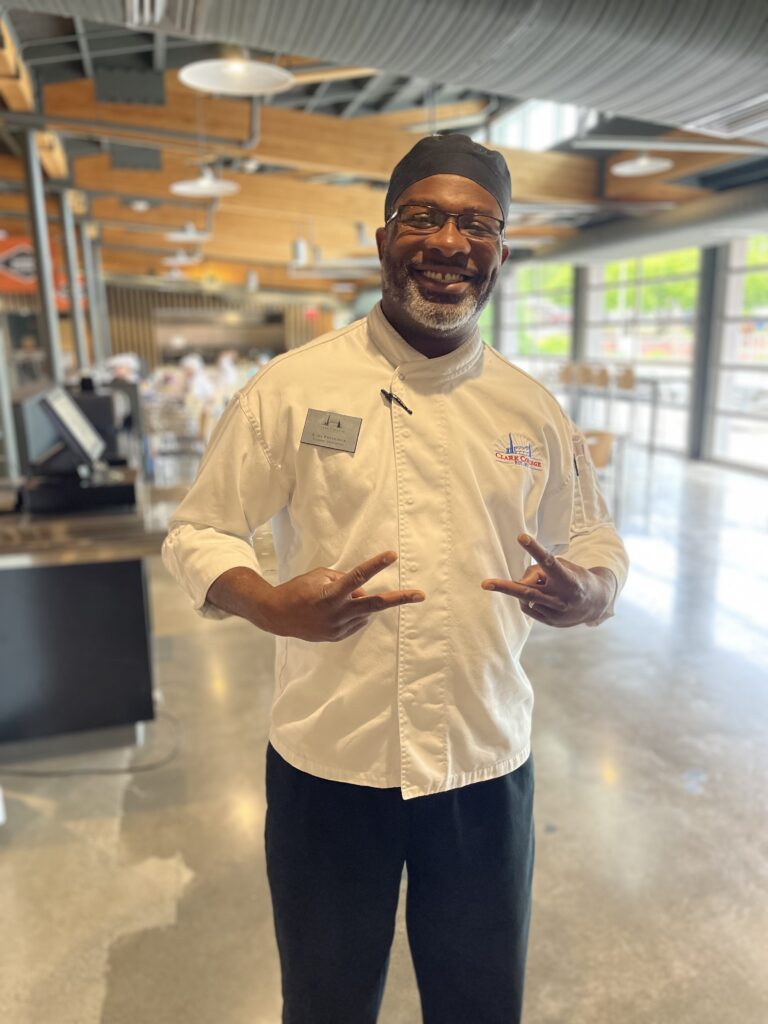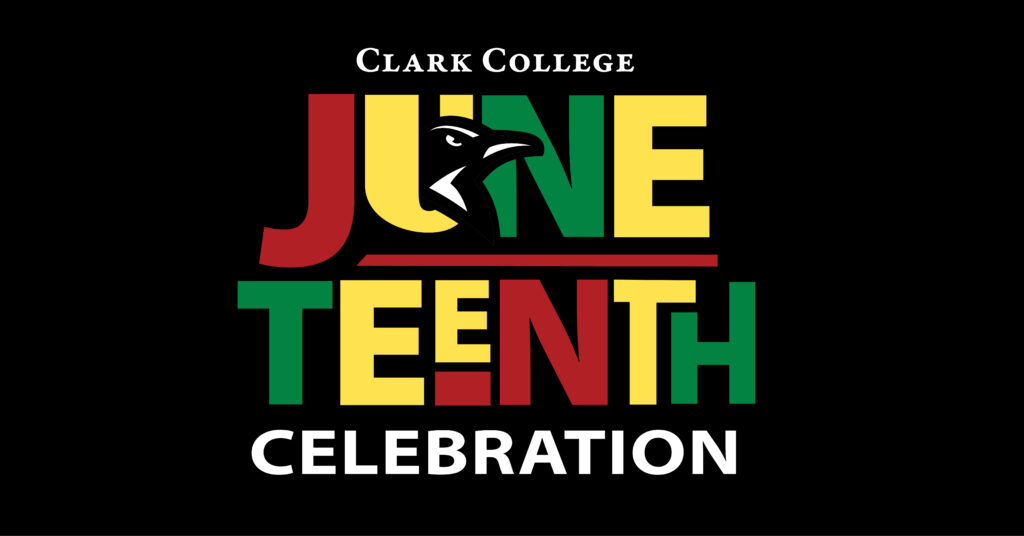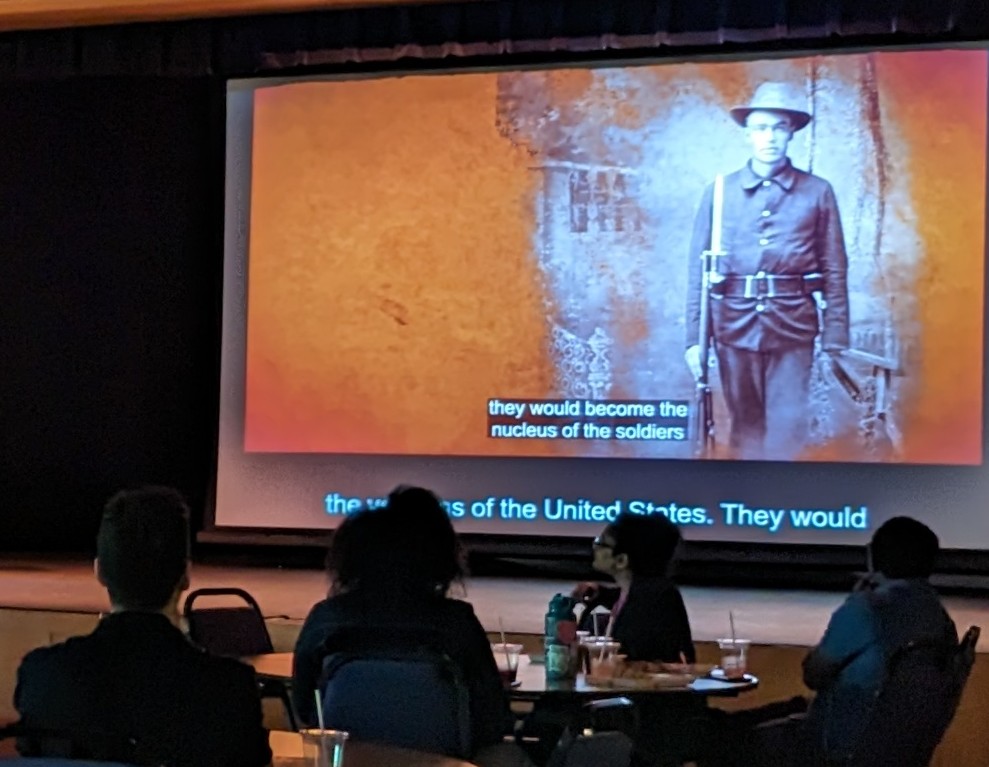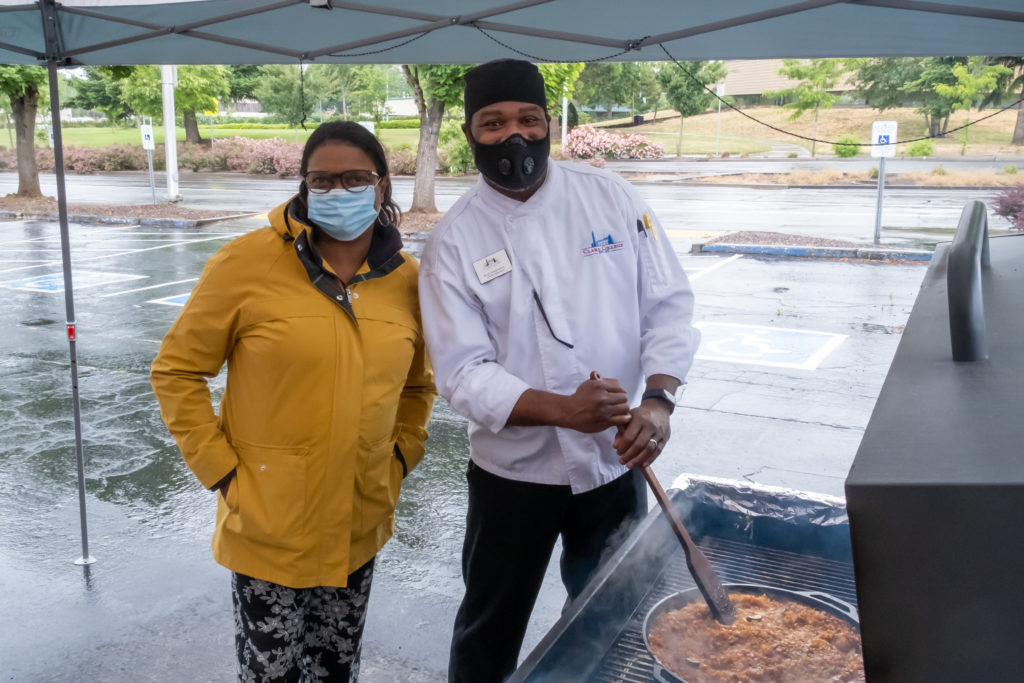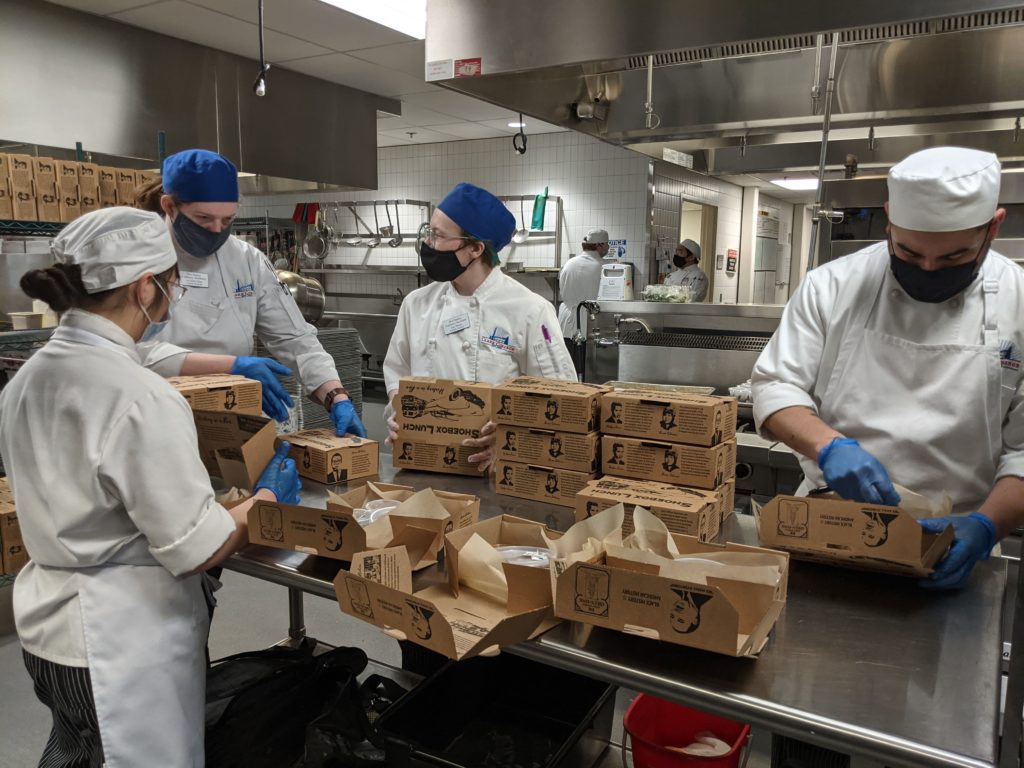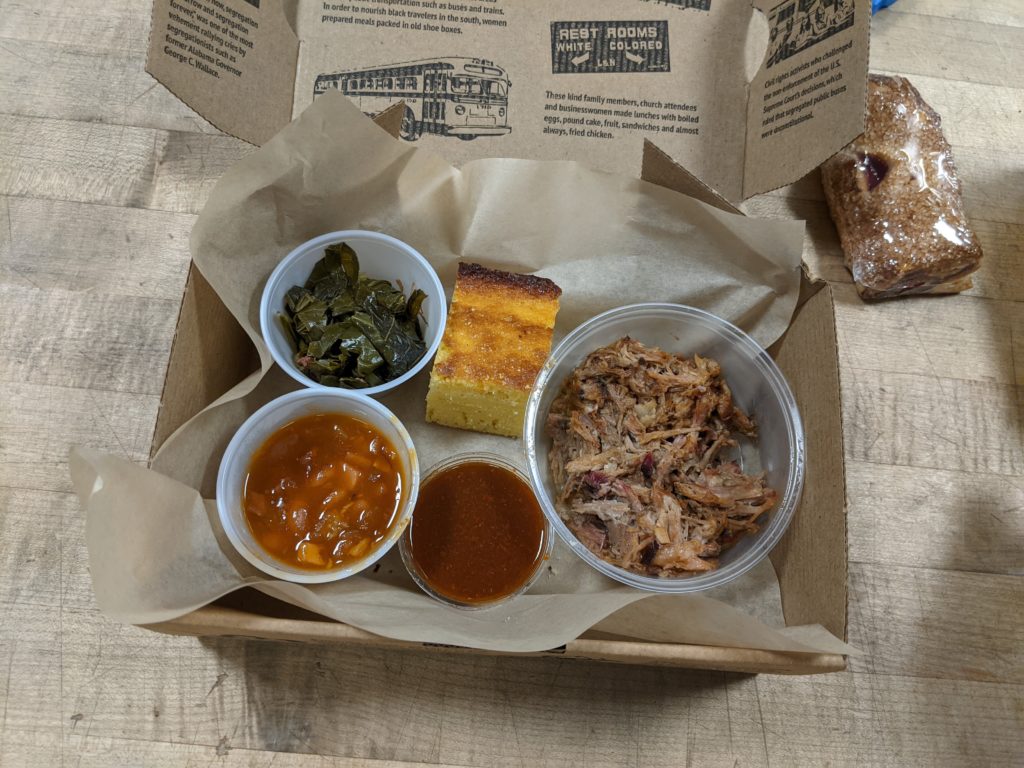Celebrating Resilience Through Storytelling
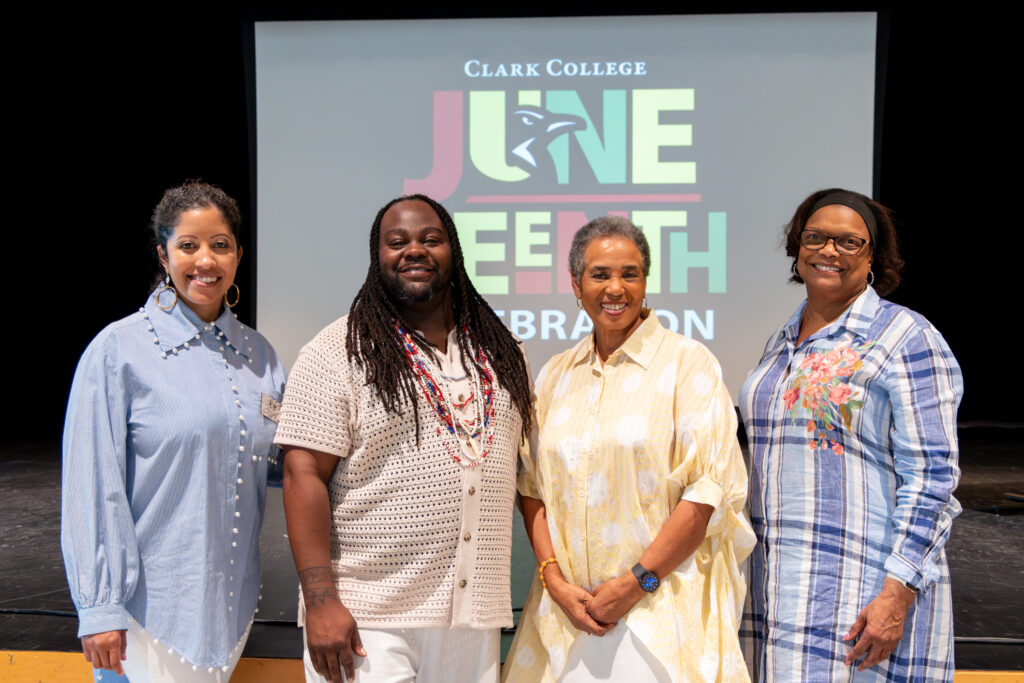
This year’s Juneteenth celebration had us “Feelin’ Some Kinda Way” as Poet Sylvia Welch would say! Held on June 9, Clark employees, students, and community members came together to honor our history as we celebrated a collective journey towards freedom and equality through food, music, and poetry.
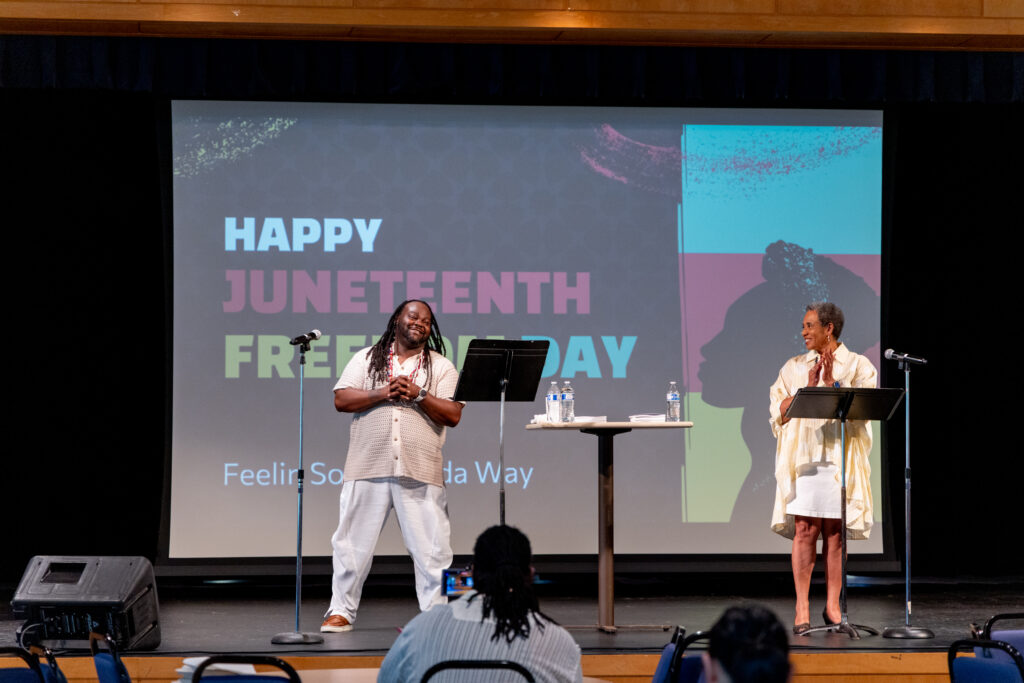
What is Juneteenth?
Juneteenth (“June” plus “nineteenth”) is more than a day off or having cookouts. It’s a day to reflect on the struggles, the resistance, and the unwavering determination of those who came before us. On June 19, 1865, the news of freedom finally reached more than 250,000 enslaved people of Texas, the last to be officially recognized as free.
As stated in an article from The New York Times’s archives: “The people of Texas are informed that, in accordance with a proclamation from the Executive of the United States, all slaves are free. This involves an absolute equality of personal rights and rights of property between former masters and slaves, and the connection heretofore existing between them becomes that between employer and hired labor. The freedmen are advised to remain quietly at their present homes and work for wages. They are informed that they will not be allowed to collect at military posts and that they will not be supported in idleness either there or elsewhere.” (General Orders, Number 3; Headquarters District of Texas, Galveston, June 19, 1865.)
On June 17, 2021, former President Joe Biden signed the Juneteenth National Independence Day Act into law, commemorating the emancipation of enslaved people in the United States and marking a pivotal moment in American history. Juneteenth signifies the end of a brutal system and the beginning of a long journey towards racial equality. It reminds us of the resilience and hope within our community.
Soulful Flavors
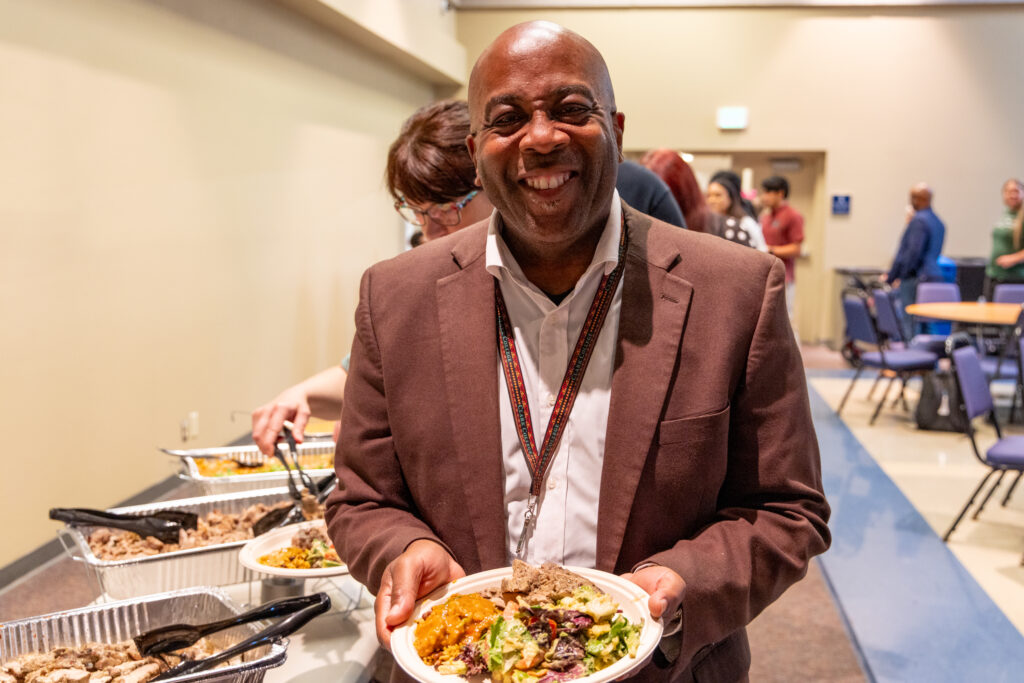
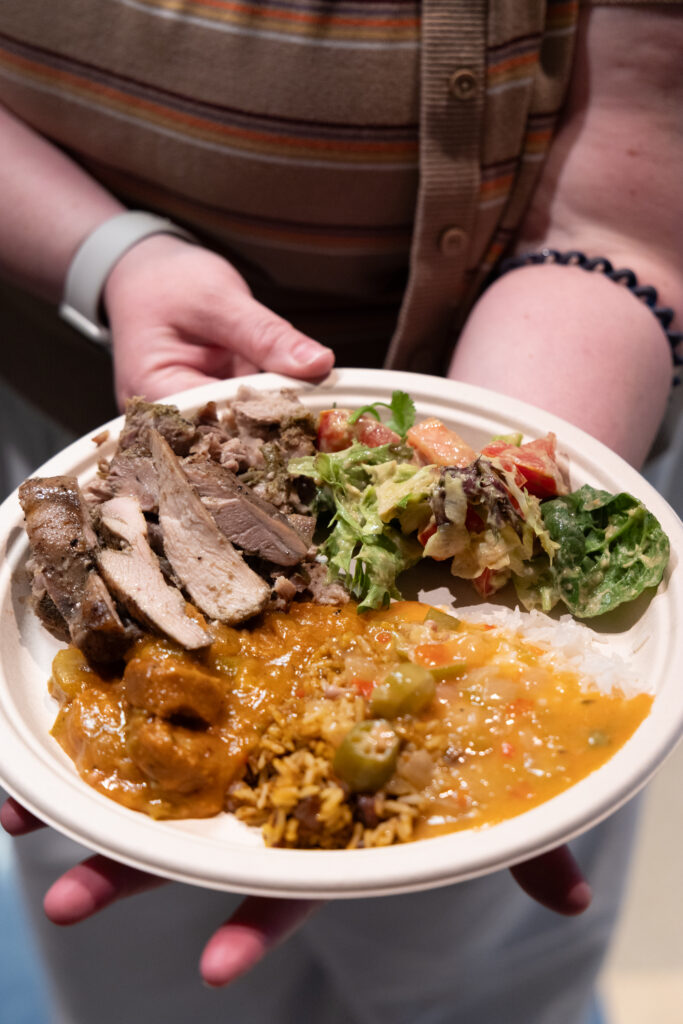
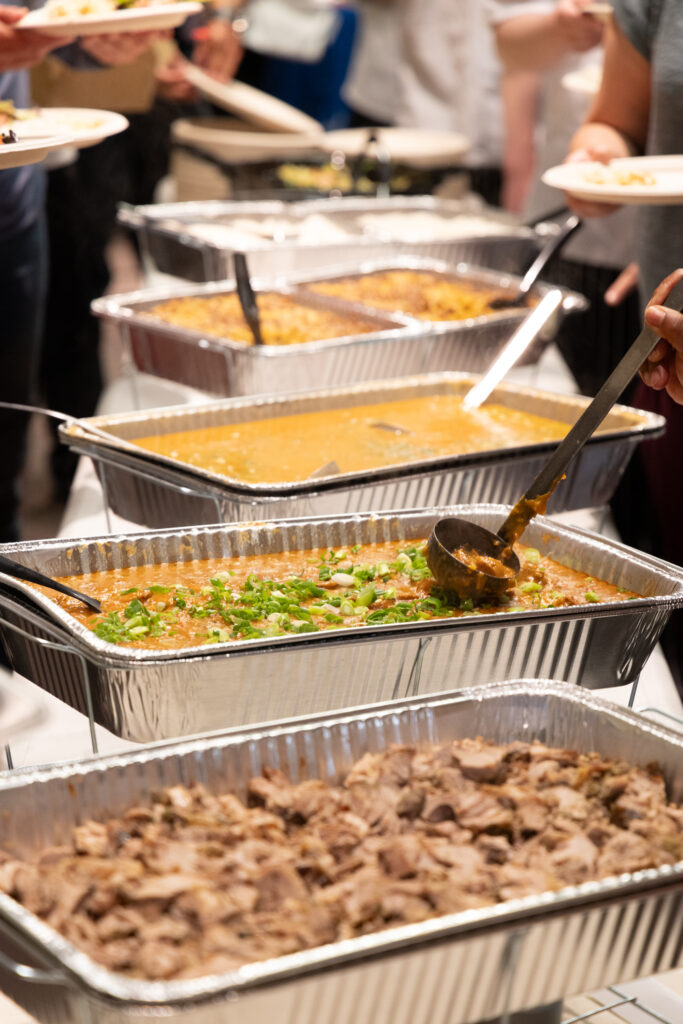
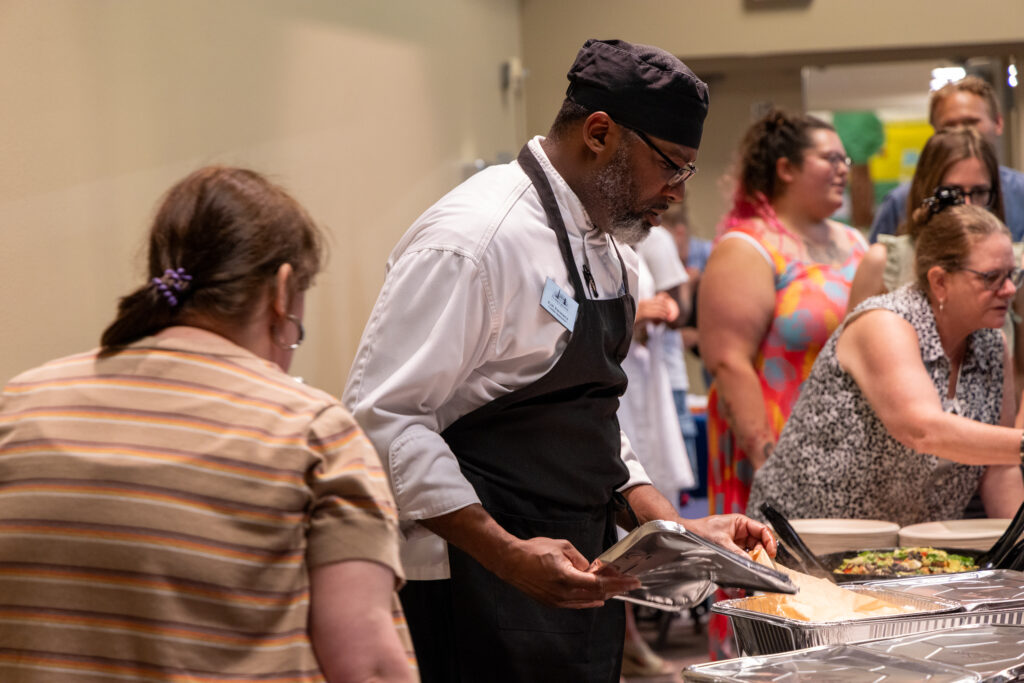
Chef Earl Frederick, pictured above center, from Culinary Arts prepared a feast of soul food for the event, the mouth-watering scents of Jamaican jerk chicken and Taino roasted pork wafting through the air as attendees joined the line that wrapped around the Student Center.
Plates were piled high with servings of various foods that reflect Black history and culture:
- Taino Roasted Pork
- Jamaican Jerk Chicken
- Creole Shrimp Gumbo
- Coconut-Ginger Rice
- Arroz con Gandules (Rice and Pigeon Peas)
- Tomato-Avocado Salad with Pikliz (Haitian Pickled Vegetable Relish)
- Freedom Punch (Hibiscus Drink)
- Mini Red Velvet Cupcakes
Storytelling through Performance
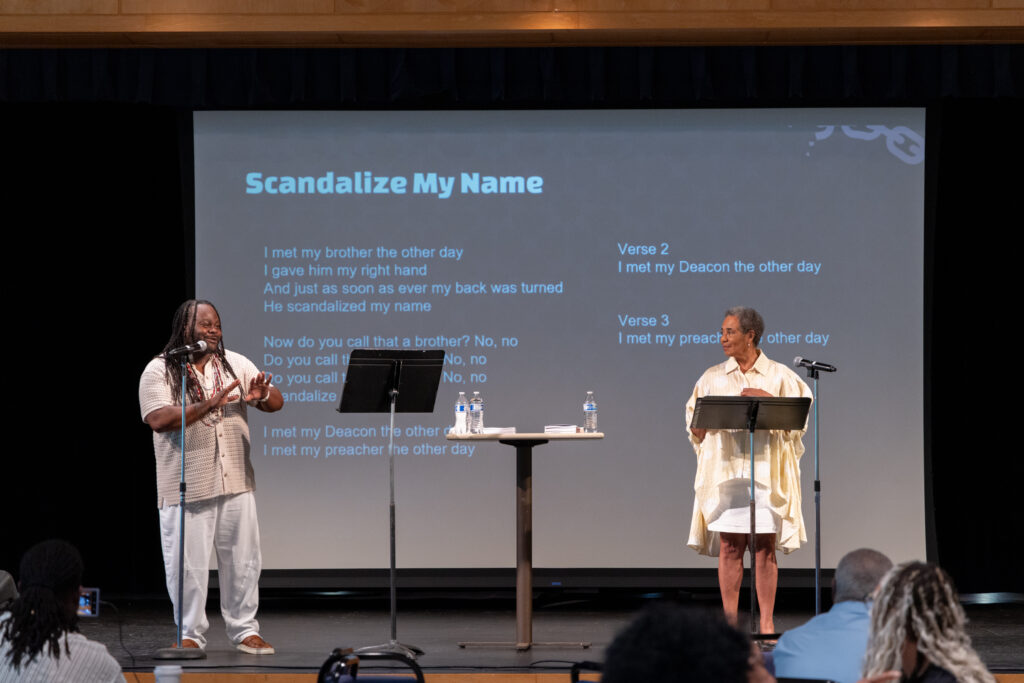
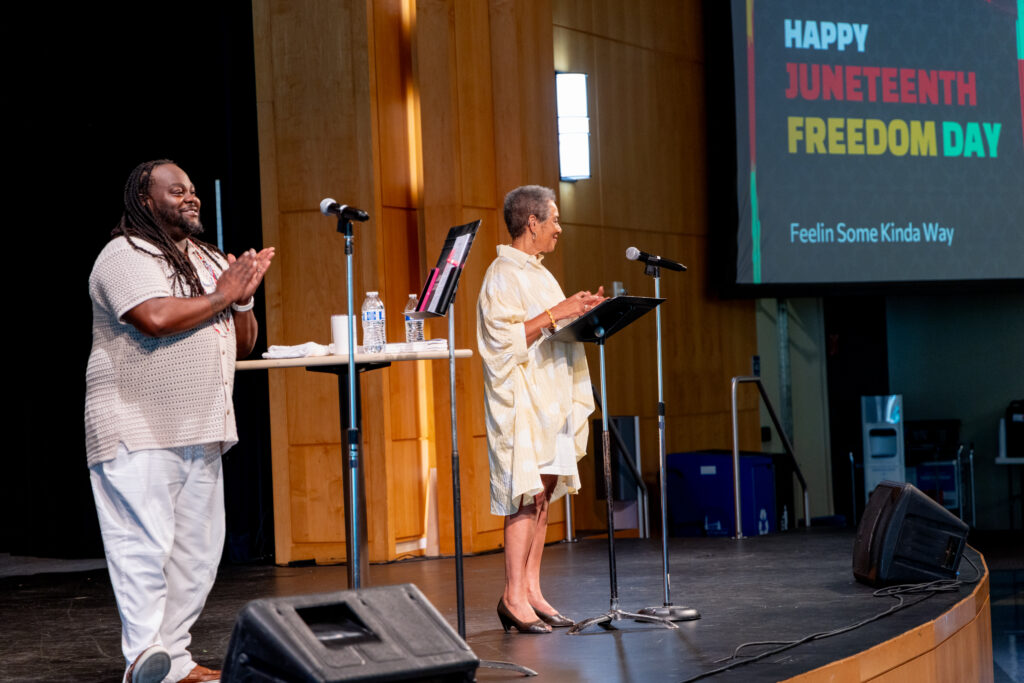
The theme of this year’s performance was “Feelin’ Some Kinda Way.” It was a powerful collaboration between MarcusAntonio Gunn and Syliva Welch as they intertwined their songs and poems into one impactful performance.
Intertwining their artistry, Sylvia and MarcusAntionio shared the strengths, vulnerabilities, and observations of the Black experience. Whether it be through MarcusAntionio’s rendition of Go Down, Moses – his operatic voice filling the room with images of resilience – or by exploring how closely lived experiences are tied to identity through Sylvia’s poem, “Still Here,” from her latest collection, Feelin’ Some Kinda Way. Each act captivated the audience with their themes of hope and perseverance. With flawless transitions between each song and poem, the artists highlighted how, no matter what your craft may be, we are all on this journey together.
As we honor Juneteenth, we recognize that our stories weren’t just recorded in books – they were painted in murals, woven into songs, and whispered across generations. Art has served as a powerful form of nourishment and empowerment, which has always been at the core of our survival, healing, and liberation. It carried our truths, and it held our joy when Black joy and identity were criminalized. We are reminded that Juneteenth is not a day to mourn – it’s a day to reclaim.
About the Artists
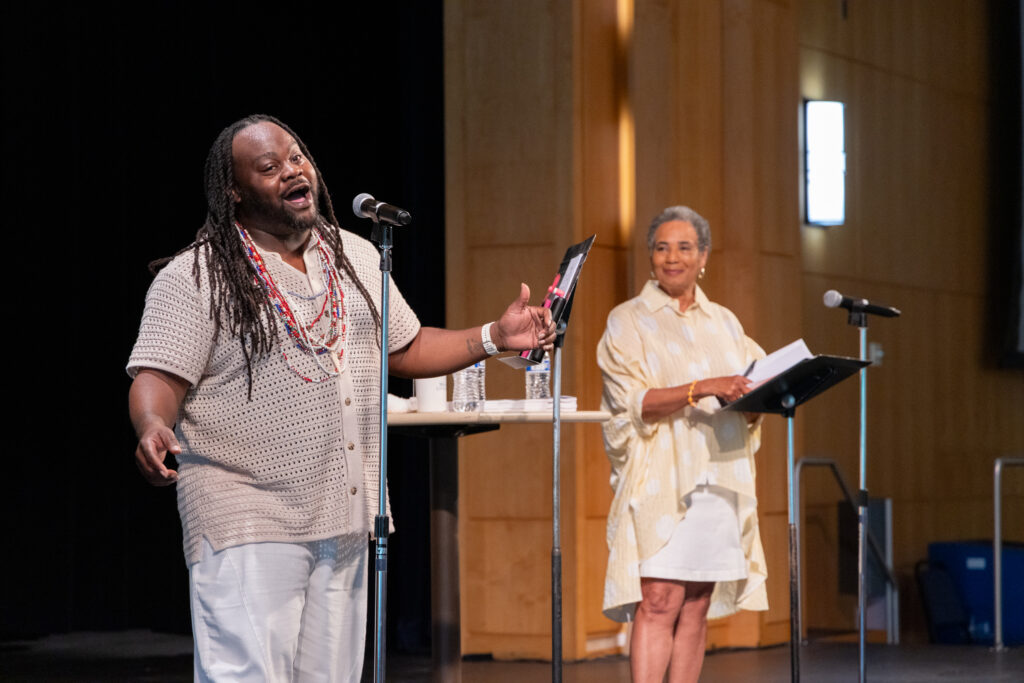
MarcusAntonio hails from a family steeped in tradition—ministers, storytellers, musicians, and vocalists. Though surrounded by talented instrumentalists, he found his true calling as a vocalist. His journey led him to Albany State University, an HBCU, where he was admitted through a presidential selection recognizing his vocal talent. There, he became the first in his family to receive formal vocal training, studying under Dr. Leroy Bynum and Dr. Deanna Weber with a concentration in Classical Technique.
Inspired by Georgia’s Civil Rights legacy, MarcusAntonio focused on Negro Spirituals—music that speaks to resilience, identity, and hope. He draws from icons like Jessye Norman and William Warfield, and his repertoire includes works by Burleigh, Hogan, and Moore. At ASU, he performed with the Jazz Band, Theater Troupe, and Advanced Choral Ensemble, and is a proud charter member of Phi Mu Alpha Sinfonia’s Rho Delta Chapter.
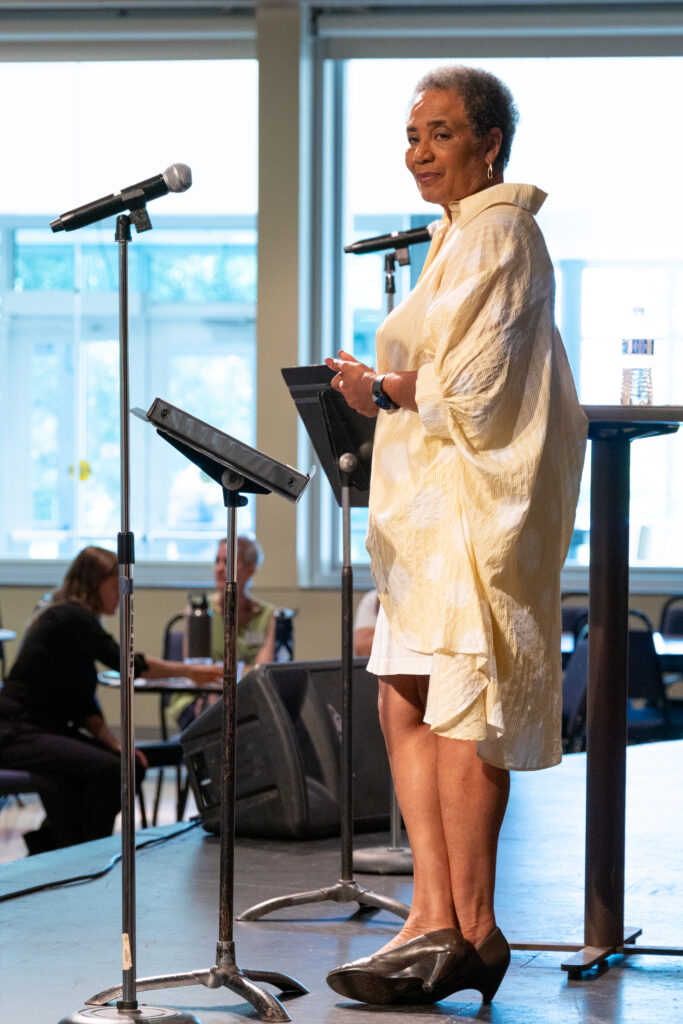
Sylvia Welch lives in Woodland, Washington, and is a wife, mother, daughter, grandmother, great-grandmother, a world traveler, adventurer, a fabric artist, and last but hardly least, an author. She began writing poetry at the age of 73, published her first book at the age of 75, and is working on her next poetry book.
Sylvia grew up in the 50s, during a time of obvious racial inequities and attended college in the mid-60s when racial, social, and political injustices were prevalent and the times were only slightly better for most African Americans. Those times produced lessons and experiences that have led to emotions, feelings, and actions that have helped her age into understanding. Her hope is to continue to do so because she has learned that understanding, like the light of day and darkness, doesn’t come all at once.
Celebrate Juneteenth in the Community
We encourage Clark employees and community members to get involved with organizations and community events to celebrate Juneteenth, including the 4th Annual Juneteenth Freedom Celebration in Vancouver on June 14, where Clark’s ODEI will be tabling. For questions or more information, reach out to diversity@clark.edu.
View more photos on our Flickr page.
Photos: Clark College/Jenny Shadley
